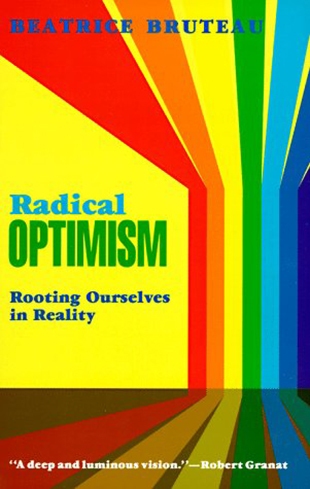"Most of us have always let our imaginations simply run wild. They have grown up without anyone ever giving them any serious attention. The intellect has been trained with scholarship and the will with morality. The feelings have learned to flow in the channels of our culture through socialization. The artistic imagination may have gotten some exercise and direction, but the everyday imagination, what of that? The images that fill our consciousness in our waking and dreaming hours, that govern our world view, our biases and our emphases, our expectations of other people, our interpretations of our experience, and that tyrant of recent years, the self-image.
"We need to become aware of the role of our imagination in our everyday inner life. We should spend some time just watching it until we learn what sorts of things it does, and understand how it is connected to our speech, body language, and behavior. We should observe what kind of reveries and fantasies we revolve in our minds when they are free-wheeling. These will accumulate and build on their predecessors until they have constructed a whole world, which for our undiscriminating subconscious mind is indistinguishable from reality.
"Thus we can interpret someone's accidental sharp tone of voice as an unfriendly reaction to ourselves, begin to give that person life in our imagination as someone who doesn't like us, therefore be on the lookout for subsequent evidence of hostility, be ready to interpret everything that happens in that light, and of course ourselves show distrust and unfriendliness in turn, which naturally have their effect on the other person; and so by building this thing up in our imagination we can develop a whole atmosphere and relationship of hostility that may be completely false and unnecessary because it all began from something quite accidental. Similarly, by persistently thinking well of persons, looking for good traits in them, imagining them as pleasant and agreeable, well-disposed toward ourselves, we will enable ourselves to behave in a naturally friendly way to them and elicit friendly responses.
"A large area of concern for the cultivation of the imagination is the area of entertainment. What kind of images do we allow entrance to our minds when we go in search of amusement? What kind of books do we read and movies and television watch? What kind of music do we listen to? What kind of dances do we see and do? What kind of sports? What effect do these things have on our spiritual life? It is a large subject and deserving of careful study, but one thing I can tell you: the answer is not 'no effect.' Everything that ever enters the consciousness has some effect on it and takes up some kind of residence there. Furthermore, there are no thought-tight or feeling-tight compartments in consciousness. Everything seeps into everything else.
"Finally, all our problems with poor self-image and unhappiness over our lives are rooted in the imagination. We like to attribute our depressed feelings to circumstances — and indeed there are circumstances under which some people have to live that are enough to depress anyone — but we also know that people can make themselves unhappy in quite neutral circumstances, and on the other hand can rise above an unfavorable quality of life and be happy.
"A story I like is that about the gathering in the elevator at nine o'clock on a Monday morning. Here come the business people, the executives and their clerical staff, with their Monday morning blues, looking glum and grumpy. The elevator operator, however, is bouncy and full of good cheer. He greets everyone with a wide grin and a hearty 'Good morning! What a fine day!' Finally someone who can't stand all this cheerfulness so early in the morning asks, 'What are you so happy about? What's so great about this day?' To which the operator replies with enthusiasm, 'I ain't never lived this day before!'
"That's what the imagination can do for you. So it behooves us to guard our imaginations, to train them, to encourage them to feed on inspiring and hopeful fare. In the Epistle to the Philippians we read: 'Whatever is true, whatever is honorable, whatever is just, whatever is pure, whatever is lovely, whatever is gracious, if there is any excellence, if there is anything worthy of praise, think about these things' (Philippians 4:8)."
